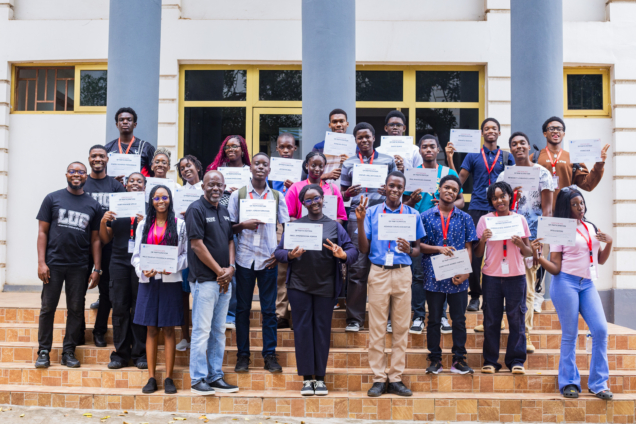
Lancaster University Ghana (LUG) is ramping up artificial intelligence and robotics training as the country grapples with a growing digital skills shortage, even as senior tech roles offer monthly salaries of up to GH₵27,000 ($1,800).
Speaking at the university’s ninth graduation ceremony in Accra, Provost and Chief Executive Officer Dr Emmanuel Arthur highlighted the newly launched Emerging Technologies Centre, which has already trained over 60 high school students in robotics.
“Artificial intelligence and robotics are not just the future; they are shaping our present,” he said, positioning students for Ghana’s expanding digital economy.
The initiative aligns with national efforts to strengthen AI skills. Ghana recently launched its National AI Strategy and aims to train half a million youth in digital skills by 2028 under the One Million Coders Programme, though demand continues to outstrip supply.
Current market data illustrates the high demand for skilled professionals. Cybersecurity specialists earn between GH₵7,000 and GH₵12,000 ($470–$800) monthly in mid-level roles, while senior positions can command GH₵20,000–GH₵27,000 ($1,333–$1,800). Companies such as Zeepay, ExpressPay, and Chipper Cash are driving this growth, particularly in fintech.
Dr Arthur also announced a fully funded scholarship program targeting female STEM students, addressing persistent gender gaps in technology fields. “This is recognition that women remain underrepresented despite the growing opportunities in Ghana’s tech sector,” he said.
LUG’s practical approach includes plans for an innovation and incubation hub for student entrepreneurs and a new moot court facility for law programs. Since its establishment in 2013, the university has graduated over 700 students contributing to telecommunications, finance, education, and oil and gas sectors.
Ghana’s wider educational system is integrating AI, robotics, and coding from primary school through university via the Basic STEM project in Sunyani. Complementary initiatives, such as the Digital Innovation and Vocational Employability (DIVE) Training Programme, are equipping graduates with practical skills to meet the rising demand for tech talent.
With international partnerships offering exchanges and advanced study opportunities in the UK, China, Germany, Malaysia, and Indonesia, Lancaster University Ghana aims to position its graduates as globally competitive, reinforcing the country’s emerging reputation as a hub for African tech talent.



